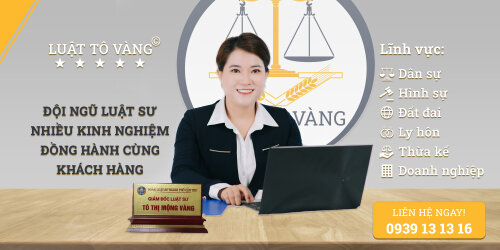Best International Trade Law Lawyers in Can Tho
Share your needs with us, get contacted by law firms.
Free. Takes 2 min.
List of the best lawyers in Can Tho, Vietnam
About International Trade Law in Can Tho, Vietnam
International Trade Law in Can Tho, Vietnam, involves the regulations and legal frameworks that govern the exchange of goods, services, and intellectual property across international borders. In Can Tho, a thriving city and trade hub located in the heart of the Mekong Delta, understanding these laws is crucial for businesses and individuals engaged in international commerce. The city benefits from Vietnam's strategic geographical location and its growing economic integration into the global market. Consequently, legal practitioners and entities must navigate a complex web of bilateral and multilateral agreements, domestic regulations, and international trade agreements.
Why You May Need a Lawyer
There are several situations where you might require legal assistance in the realm of International Trade Law:
- Contract Negotiation and Drafting: Drafting international trade contracts requires a deep understanding of both domestic and international law to prevent disputes and ensure enforceability.
- Dispute Resolution: In cases where contractual agreements are breached, lawyers specializing in International Trade Law can assist in resolving disputes through arbitration or litigation.
- Compliance Issues: Ensuring compliance with Vietnam's trade regulations, as well as those of trade partners, is essential to avoid penalties and sanctions.
- Tariff and Taxation: Understanding the implications of tariffs and taxes on international transactions is vital for businesses to maintain profitability.
- Customs Issues: Legal advice may be needed to navigate complex customs regulations and avoid delays or penalties.
Local Laws Overview
There are several key aspects of local laws that are especially relevant to International Trade Law in Can Tho:
- Trade Agreements: Vietnam is a member of various international trade organizations and agreements such as the World Trade Organization (WTO) and the Comprehensive and Progressive Agreement for Trans-Pacific Partnership (CPTPP), which influence local trade laws.
- Customs Procedures: The General Department of Vietnam Customs outlines specific procedures for import-export activities, requiring careful compliance to prevent legal issues.
- Investment Regulations: Foreign investment is regulated under the Law on Investment and Law on Enterprises, ensuring a fair and transparent environment for international businesses.
- Dispute Resolution Mechanisms: Vietnam has established robust legal frameworks and courts for resolving commercial disputes involving international parties.
Frequently Asked Questions
What are the essential documents required for international trading in Can Tho?
Essential documents include commercial invoices, packing lists, certificates of origin, bills of lading, and any applicable licenses or permits.
How can I ensure compliance with Vietnamese trade regulations?
Engage with local legal experts or consultants who are familiar with Vietnam's trade laws, customs procedures, and international agreements.
What is the role of customs authorities in international trade?
Customs authorities oversee the import and export process, ensuring compliance with laws and regulations, and managing duties and taxes.
Are there any particular restrictions on products that can be traded internationally?
Yes, certain products may be subject to import-export restrictions or require specific permits, such as agricultural products or hazardous materials.
How does Vietnam's participation in international trade agreements impact businesses in Can Tho?
Participation in trade agreements often reduces tariffs, increases market access, and strengthens trade relations, benefiting local businesses engaged in international trade.
What should I do if I encounter a trade dispute?
Seek legal counsel with expertise in International Trade Law to explore dispute resolution options, such as mediation, arbitration, or court litigation.
Is it necessary to have a local partner for foreign business operations?
While not always mandatory, having a local partner can be beneficial due to their understanding of the market and local regulations.
What are the risks involved in international trading?
Common risks include exchange rate fluctuations, changes in trade policies, political instability, and non-compliance with legal standards.
Can legal advice help in reducing tariff liabilities?
Yes, legal advice can help in understanding tariff classifications and possible exemptions, which can reduce liabilities.
How does Vietnam's legal framework support foreign investors?
Vietnam's legal framework provides incentives, protection against expropriation, and dispute resolution mechanisms to support foreign investors.
Additional Resources
Here are some resources that can be helpful for those seeking guidance in International Trade Law:
- Vietnam Chamber of Commerce and Industry (VCCI): Offers resources and support for businesses in international trade.
- General Department of Vietnam Customs: Provides guidelines and information for customs procedures and compliance.
- Ministry of Industry and Trade (MOIT): Offers updates on trade policies and regulations in Vietnam.
- Vietnam International Arbitration Centre (VIAC): Provides arbitration services for resolving trade disputes.
Next Steps
If you find yourself needing legal assistance in International Trade Law, consider the following steps:
- Identify your specific legal needs related to international trade and the issues involved.
- Research and consult with legal professionals specializing in International Trade Law in Vietnam.
- Prepare all relevant documentation and details concerning your trade activities or legal situation.
- Engage a qualified lawyer or legal firm to ensure you receive expert advice and representation.
- Stay informed on any changes in the legal environment or trade regulations that may affect your business operations.
Lawzana helps you find the best lawyers and law firms in Can Tho through a curated and pre-screened list of qualified legal professionals. Our platform offers rankings and detailed profiles of attorneys and law firms, allowing you to compare based on practice areas, including International Trade Law, experience, and client feedback.
Each profile includes a description of the firm's areas of practice, client reviews, team members and partners, year of establishment, spoken languages, office locations, contact information, social media presence, and any published articles or resources. Most firms on our platform speak English and are experienced in both local and international legal matters.
Get a quote from top-rated law firms in Can Tho, Vietnam — quickly, securely, and without unnecessary hassle.
Disclaimer:
The information provided on this page is for general informational purposes only and does not constitute legal advice. While we strive to ensure the accuracy and relevance of the content, legal information may change over time, and interpretations of the law can vary. You should always consult with a qualified legal professional for advice specific to your situation.
We disclaim all liability for actions taken or not taken based on the content of this page. If you believe any information is incorrect or outdated, please contact us, and we will review and update it where appropriate.











